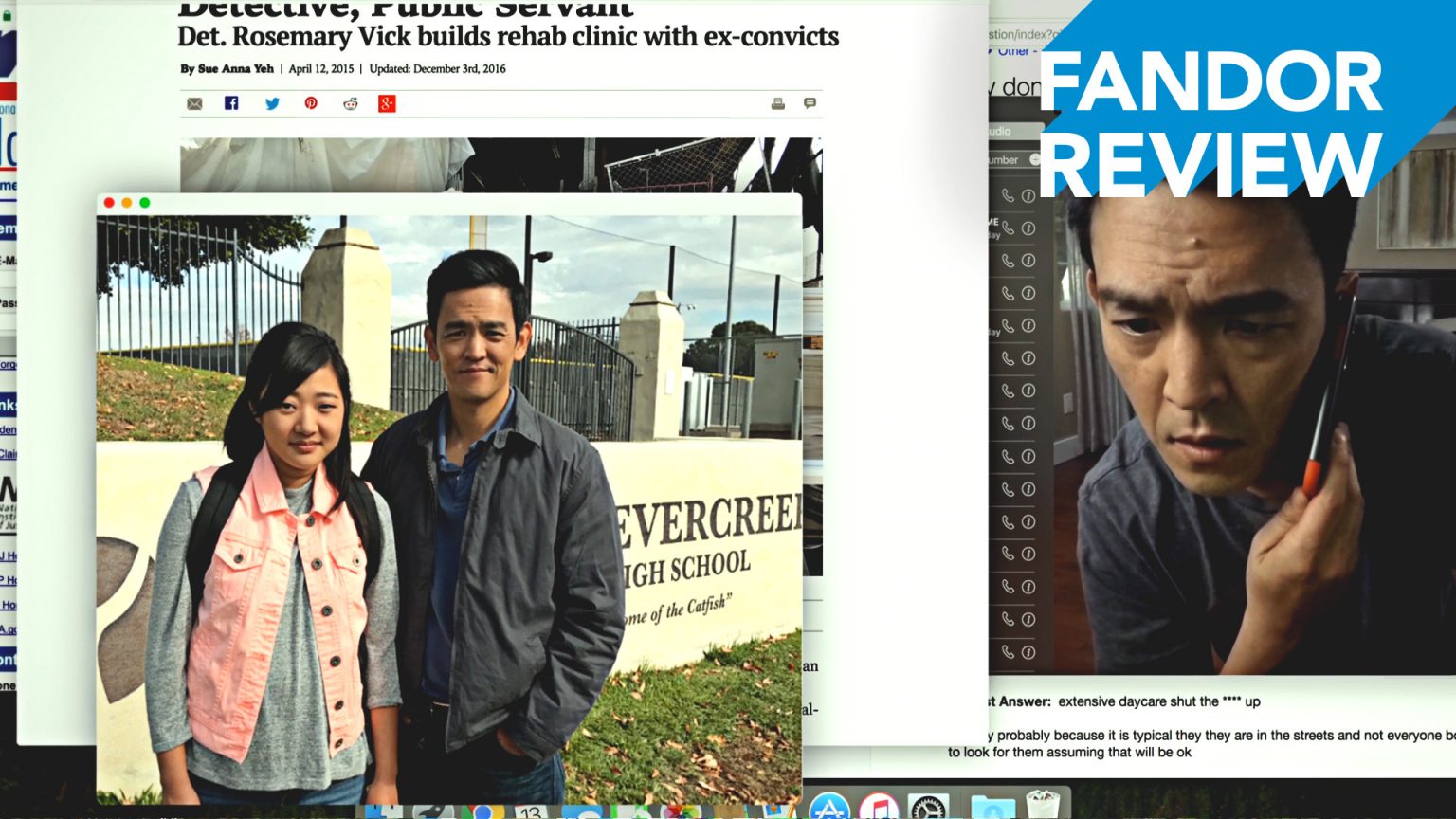New forms of cinematic storytelling often follow a pattern: Filmmakers introduce a new style that audiences respond to, inevitably leading to a slew of imitations. The Blair Witch Project’s success with found-footage injected the horror genre with a fresh look, but countless subsequent (often inferior) films diluted the style’s potency, even going so far as to make it a cliché. Searching, director Aneesh Chaganty’s feature debut, tiptoes into this familiar territory. The entire film takes place on the screens of electronic devices (computers, cell phones, televisions), which is a nascent narrative device incorporated in other recent movies, like the Unfriended series. Though it’s unclear whether or not Chaganty’s style will take root as a more common mode of storytelling, Searching nonetheless stands on its own as a worthwhile experience.
Through an emotional whirlwind of an introduction, we experience the past sixteen years in the lives of the Kim family: A father, David (John Cho), mother, Pamela (Sara Sohn), and their teenaged daughter, Margot (Michelle La). Efficient without being overly saccharine, Chaganty gives the audience all of the information it needs to set up the story’s premise. Through family photos, home movies, and text messages, we see that the Kims share a strong bond, one that is both strengthened and strained by Pamela’s eventual cancer diagnosis. After a brief recovery, the cancer returns and Pamela passes away, leaving David and Margot to fend for themselves. Margot is all David has, so he is understandably a bit overbearing. Losing Margot would be devastating and, soon enough, that’s just what happens.
Margot tells David that she is leaving to spend the evening with a study group. David goes to bed and, the following morning, quite uncharacteristically, Margot doesn’t respond to his text messages. Soon, it becomes clear that Margot is missing, which sends David into a panic and morphs the film into a mystery thriller. With the help of a passionate detective, Rosemary (Debra Messing), David embarks on a journey into the depths of the internet to find out what happened to Margot.
As the story twists and turns, Chaganty seamlessly incorporates the digital devices, through which we experience the movie. Notably, Cho almost singlehandedly carries the weight of the story, adding Searching to a growing list of films, including the recent Columbus, that prove the actor deserves far more than the small roles he’s typically cast in. In addition to conveying the raw emotion of a desperate father, Cho’s performance distracts from the film’s occasionally contrived devices.
At times, the style feels forced. When David video-calls Rosemary in the middle of the night, the scene feels less like an organic exchange and more like an interaction designed to give the audience a moment that feels more like an ordinary movie. There is a limit, it seems, to the number of text messages and phone calls one can tolerate before the experience starts to feel stale. It’s in moments like these that the film’s approach veers dangerously close to feeling like a gimmick, one that uses a catchy, creative, and timely style to bolster a narrative that wouldn’t stand on its own as a more conventionally shot film.
Still, Chaganty and Cho manage to avoid making the style feel tired because the powerful emotion of the story and the performances do stand on their own. The movie is not a screenwriting masterpiece; it doesn’t have the airtight intricacies of a Christopher Nolan film, nor the eccentric nuance of a Charlie Kaufman script, but it still manages to hit the audience where it hurts. One can’t help but be gripped by David’s plight, the mystery behind Margot’s disappearance, and the film’s wrenching conclusion. Searching may not be as memorable as one would hope, but, in advance of what is sure to be a slew of similarly-styled films, it tips the balance in favor of substance over style, and sets itself apart.




